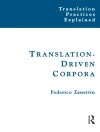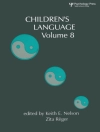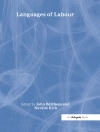Certain forms of mobility and multilingualism tend to be portrayed as problematic in the public sphere, while others are considered to be unremarkable. Divided into three thematic sections, this book explores the contestation of spaces and the notion of borders, examines the ways in which heritage and authenticity are linked or challenged, and interrogates the intersections between mobility and hierarchies and the ways that language can be linked to notions of belonging and aspirations for mobility. Based on fieldwork in Africa, Asia, Australasia and Europe, it explores how language functions as both site of struggle and as a means of overcoming struggle. This volume will be of particular interest to scholars taking ethnographic and critical sociolinguistic approaches to the study of language and belonging in the context of globalisation.
Table of Content
Introduction: Kristine Horner and Jennifer Dailey-O’Cain: Multilingualism, (Im)mobilities and Spaces of Belonging
Section I: Contested Spaces: Language, Borders and (Un)belonging
Chapter 2. James Hawkey: The Border as a Site of Sociolinguistic Inquiry: Findings from Northern Catalonia
Chapter 3. Mark Payne: Ethnolinguistic Landscaping in Sheffield: The invisible Repertoires of the Slovak Roma
Chapter 4. Yolandi Ribbens-Klein: The Embodiment of Place: Boorlinge, Inkommers and the Struggle to Belong
Chapter 5. Mike Baynham: Contested Spaces: A Commentary
Section II: Trajectories and Heritage: Language, Authenticities and (Un)belonging
Chapter 6. Antonia Rubino: Authenticity, Agency and Mobility in the Discourse of Italian Migrants in Australia
Chapter 7. Katharina König: Speaking with or without an Accent: Language Ideologies and the ‘Problem’ of Linguistic Super-Mobility
Chapter 8. Jessica Bradley and James Simpson: Negative Translanguaging Space: Mobility and Immobility in Inner-City Leeds
Chapter 9. Samantha Litty and Joseph Salmons: Trajectories and Heritage: A Commentary
Section III: Mobilities and Struggle: Language, Hierarchies, and (Un)belonging
Chapter 10. Sarah Muller, Clea Schmidt and Jean-Jacques Weber: Perceived Legitimacy and Translanguaging: Exploring the Interconnectedness of Pedagogy and Policy
Chapter 11. Mi Yung Park: Gender Ideologies and Korean Language Learning: Experiences of Female Marriage-Migrants in Rural South Korea
Chapter 12. Bernardino Tavares and Kasper Juffermans: Language and (Im)mobility as a Struggle: Cape Verdean Trajectories into Luxembourg
Chapter 13. Ana Deumert: Mobilities and Struggle: A Commentary
About the author
Jennifer Dailey-O’Cain is a sociolinguist at the University of Alberta, Canada, with a research focus on everyday language in use, but always with an eye toward how this use relates to broader social phenomena such as identity, ideology, and globalisation. She is the author of Trans-National English in Social Media Communities (2017, Palgrave Mac Millan).












